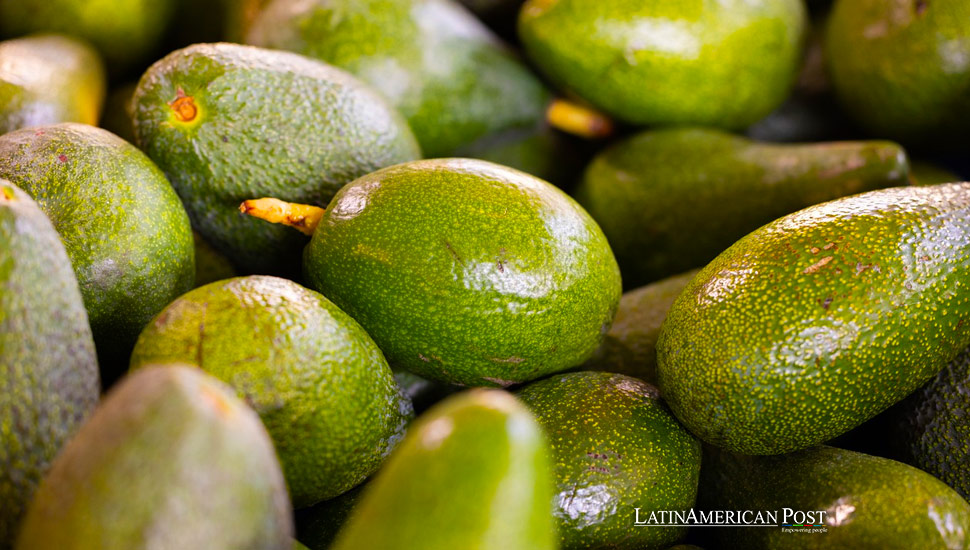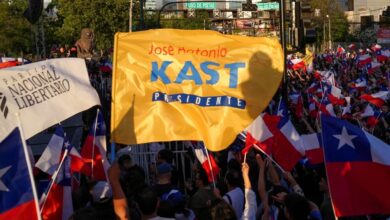The Avocado Mafia’s Grip on Mexico’s Lucrative Industry

The recent assault on US avocado inspectors in Michoacán underscores the dangerous intersection of organized crime and agriculture in Mexico. This incident highlights the precarious nature of the avocado industry and its deep entanglement with violent cartels.
When two US avocado inspectors were assaulted and detained at a police roadblock in the Mexican state of Michoacán last month, it sparked a costly international crisis. The US paused all avocado imports from the state for more than a week, leaving Mexican growers out tens of millions of dollars and temporarily sending the price of a carton of the fruit in the US soaring by 40 percent, according to analysis firm RaboResearch Food & Agribusiness.
Weeks later, after diplomats and agricultural officials from both countries negotiated new security guidelines around inspections, the massive cross-border trade has stabilized, with the US Department of Agriculture saying that export levels returned to normal at the beginning of July. However, this episode underscored the precarious nature of the industry and the immense volatility in a region that provides most of the world’s avocados, one of Mexico’s most dangerous states and a nexus of cartel power.
The Lucrative Avocado Market and Cartel Influence
Avocados, the creamy fruit called “green gold,” are big business. Of the nearly 2.7 million metric tons of fruit grown last year in Mexico, 81 percent went to the US, at a value of $2.7 billion. Almost three-quarters of Mexican avocados come from Michoacán, a state along the country’s Pacific coast with a volcanic belt running through it, making its soil ideal for farming. The state’s deepwater port has also been critical for the flourishing of drug cartels, which moved into Michoacán in the 1980s, fueling a homicide rate that is today more than twice the national average.
The expansion of the avocado market in the state around the same time has been “deeply intertwined” with violent groups and corrupt public authorities, according to a report by the Global Initiative Against Transnational Organized Crime. Researchers described how criminal groups illegally burn and log protected forests and bribe local officials to change permissions around land use, allowing for commercial activity. An academic article published by the Mexican government cited in the report indicated that 80 percent of the avocado orchards in Michoacán were established illegally, initially through unauthorized land use. Then, it was legalized thanks to the corruption of public authorities.
Cartels today also regularly extort producers in protection schemes. Local police forces commonly rent themselves out as security for producers, and heavily armed militias known as “autodefensa” groups have formed to patrol farms.
The Dangerous Dynamics of Avocado Production
“This is the core of the mafia-style relationships that exist in Michoacán around avocado production,” Romain Le Cour, one of the report authors and a senior expert at the initiative, said in an interview. “You need criminal actors to stir up the business, business entrepreneurs to run the business, and corrupt authorities to make sure that what you’re doing becomes legalized or laundered.”
Mexican officials were quick to downplay the incident involving the inspectors, claiming it was nonviolent and unrelated to organized crime and the inspectors’ work in the avocado industry. The inspectors, who were Mexican citizens working for the USDA Animal and Plant Health Inspection Service, were stopped and taken from their car after attempting to cross a barricade on a highway set up by police officers protesting a pay issue, according to Alfredo Ramírez Bedolla, the Michoacán governor.
US Ambassador to Mexico Ken Salazar has said, however, that the men were assaulted. The Michoacán state prosecutor’s office told CNN last month that they had opened an investigation into the incident.
The Global Context and Future Prospects
Since the US first allowed imports of avocados from Michoacán in 1997, APHIS employees in the country have inspected avocado orchards to ensure they are free of pests that could harm US avocado crops. About 100 inspectors from the agency operate within the state, according to Ramírez, visiting avocado groves and packing facilities to check the fruit before issuing a certification.
The recent attack highlights the broader implications of cartel influence on global food supply chains. The lucrative nature of the avocado trade has made it a prime target for organized crime, which sees the industry as another revenue stream alongside traditional drug trafficking. This intersection of agriculture and crime poses significant challenges for Mexican and international authorities.
Efforts to secure the avocado trade are ongoing. US and Mexican officials are considering changes to the strict processes that direct how the fruit can reach American kitchens to meet ever-increasing demand, with industry groups and advocates urging more oversight. The aim is to ensure the safety of inspectors and the integrity of the supply chain while mitigating the influence of cartels.
The situation in Michoacán is not unique to Mexico. Across Latin America, agricultural sectors are frequently targeted by organized crime, which exploits weak regulatory frameworks and corrupt officials to exert control. From cocoa in Colombia to bananas in Honduras, the entanglement of legitimate agricultural industries with criminal enterprises is pervasive.
In countries like Colombia, similar dynamics play out in the coffee and cocoa industries, where cartels and guerrilla groups have historically leveraged agricultural production for financial gain. Efforts to combat these issues often require a multifaceted approach, including strengthening law enforcement, promoting good governance, and ensuring economic alternatives for local communities.
The case of Michoacán’s avocados is a stark reminder of the complexities of disentangling criminal elements from legitimate businesses. It underscores the need for comprehensive strategies that address immediate security concerns and the underlying socioeconomic factors that allow such dynamics to flourish.
Navigating a Precarious Industry
The assault on US avocado inspectors in Michoacán has highlighted the precarious and often dangerous nature of the avocado industry in Mexico. The deep ties between organized crime and avocado production in Michoacán reflect a broader challenge faced by agricultural sectors across Latin America. As demand for avocados continues to rise, so does the need for robust measures to protect the industry from criminal exploitation.
Addressing these challenges will require coordinated efforts between governments, industry stakeholders, and international partners. Ensuring the safety and integrity of the avocado supply chain is crucial for economic stability and the well-being of communities involved in its production.
As Mexico and the US work to implement new security guidelines and oversight measures, the broader goal must be to create a sustainable and secure environment for avocado production. This includes tackling corruption, enhancing law enforcement capabilities, and supporting local economies to reduce the influence of organized crime.
Also read: Mexico’s Fentanyl Seizures Drop Amid Internal Cartel Conflict and Methamphetamine Focus
The story of Michoacán’s avocados is a microcosm of the broader struggles agricultural industries face in Latin America. It reminds us of the resilience and determination required to navigate these challenges and the importance of continued vigilance and cooperation in the face of adversity.





